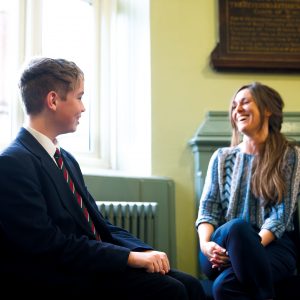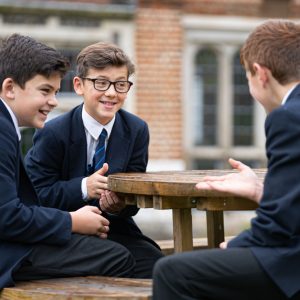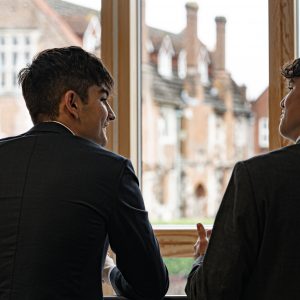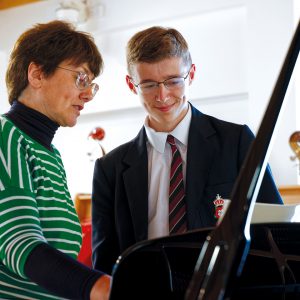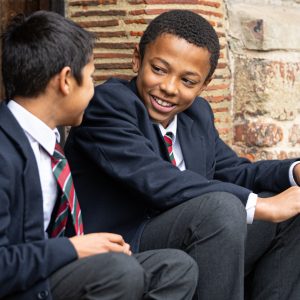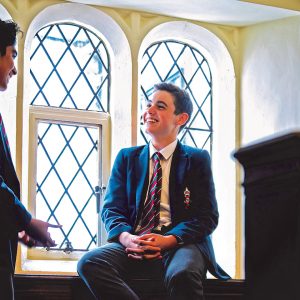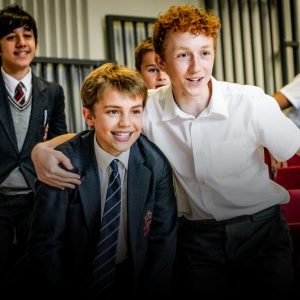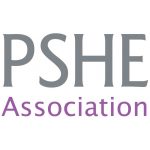Underpinning every aspect of school life is a fundamental commitment to each individual’s personal development: wellbeing and pastoral care are the very cornerstones of the RGS experience. Happy, confident boys flourish and our staff have invaluable experience, as well as the necessary patience and compassion, to support each student. Teenage years are not without their challenges; however, a culture of openness defines us. There is always someone on hand to listen, someone able to provide advice and reassurance. The outstanding pastoral care on offer from dedicated Form Tutors, Heads of Year and Section, the School Counsellor, School Nurse and Personal Tutors as well as our phenomenal peer mentoring programme, all overseen by the pastoral Deputy Head, enables the boys to thrive in a mutually supportive environment where every boy enjoys a deep sense of identity and belonging. The boys establish lasting relationships within the year group; in addition, the house system, mentoring, and the role of all our senior boys as prefects ensure friendships are forged throughout the School. Academically, our excellent Special Educational Needs Department tailors individual action plans to the needs of each individual, ensuring there are no barriers to fulfilling potential.
Pastoral
We place great emphasis on emotional and physical balance: working as a close partnership between our boys, their parents and the School. By tackling in an open, honest way issues such as mental health and those challenges associated with teenage years, we educate our boys more broadly in a balanced, considered fashion. Healthy debate and discussion, as well as clarity and information, mean our students develop a mature moral compass: respect for themselves and respect for others.
Safeguarding
As a school community we are committed to safeguarding and meeting the needs of all our students. A copy of our Safeguarding Policy is available be clicking here. The welfare, wellbeing and safeguarding of all the boys at the RGS is always our highest priority. Our policies and procedures are regularly updated and communicated to all members of our community, with relevant regulatory training for all staff. In addition, our policies and procedures are subject to regular review by governors and inspection by the relevant authorities. Assistant Head Mr Gough is our Designated Safeguarding Lead (DSL); he is supported by several Deputy DSLs in his safeguarding team, who have received the relevant training.
Professional Support
It would be naïve to say there are no instances of our boys finding things difficult. We are acutely aware of how challenging the teenage years can be; the recent disruption to everyday and school life has further exacerbated this.
A team of dedicated, specialist, professional staff support and – where necessary – intervene to nurture the physical, mental and emotional health of our students. We have a full programme of personal, social, health and moral education for boys and parents alike to guide them through the teenage years.
To further support our boys’ wellbeing, advice is available through our fantastic team of professionals, including our School Counsellor, our School Nurse and our experienced pastoral team.
Learning Support and Special Educational Needs
At the RGS, our aim is to promote the wellbeing and learning potential of every student. The Learning Support Department works closely with all teachers to ensure that the specific needs of every student are met.
The Learning Support Department provides assistance for boys, which covers areas such as emotional intelligence, spelling booster classes, writing organisation, examination technique and revision strategies. In addition, members of the English and Mathematics Departments, who have specific areas of expertise, run small support classes for students in the First to Fifth Forms.
Boys are screened upon entry to the School to ascertain whether additional support is required and they are then monitored throughout their time at the RGS. If appropriate, the School will recommend that boys are assessed by an Educational Psychologist. All boys on the Learning Support Register will have a Personal Pupil Profile with strategies to support their learning in the classroom and at home. This profile will be put together after consultation with both the pupil and his parents and will be reviewed regularly. Support is undertaken in an unobtrusive but effective manner so that students are able to address challenges they face in a structured and encouraging way. Support will take the form of either individual or small group sessions, where the focus is on developing confidence and formulating strategies to enable boys to maximise their potential and fully enjoy their learning. There is no additional cost to parents for these support classes.
We have experience in supporting students with a number of additional needs including: dyslexia, dyspraxia / developmental co-ordination disorder (DCD), Asperger syndrome, autism or pervasive developmental disorder, anxiety disorder, attention deficit hyperactivity disorder (ADHD/ADD) and visual, hearing or physical impairments.
Our admissions procedure is conducted on a fair and non-discriminatory basis; we follow the JCQ criteria for examinations.
Mentoring
The Academic and Senior Mentoring schemes are a distinctive part of the RGS experience and provide one-on-one peer support for certain boys, as required, in the First to Fifth Forms. Carefully selected and trained Sixth Form Mentors give weekly support to boys who are struggling with aspects of school life such as organisation or who are finding a particular subject area challenging. Younger students are often more ready to listen and take on board the advice of older boys, who have often experienced similar issues themselves. Over a period of between six weeks to a term, the mentor and student develop a close rapport, which enables the younger student to speak honestly and openly and, as a result, to find practical solutions to the challenges he is facing.
PSHME and Tutor Periods
The School has a bespoke programme to deliver PSHME (Pastoral, Social, Health, and Moral Education). The statutory curriculum is delivered alongside additional topics that the School feels are relevant. In this way, the programme has a solid foundation but adapts to the changing needs of teenagers in a rapidly-moving society. The timetable in the Lower and Middle School provides a Tutor Period where students will consider, in an age-appropriate way, issues affecting their lives. In the Senior School this is done through Religious Education periods and the General Studies programme. These lessons can be led by the Tutor, or another member of the pastoral team or invited experts in the field. Year group assemblies are often used to deliver PSHME topics and occasionally the School will devote a half or full-day for deeper consideration of pertinent topics.
Houses
The House system is at the very heart of school life at the RGS as boys derive great pride and enjoyment from their sense of identity through their involvement with their House.
There are six Houses in the School – Austen, Beckingham, Hamonde, Nettles, Powell and Valpy – named after six prominent men of Guildford, all of whom were at one time benefactors of the School.
Each RGS boy is assigned to one of the six Houses on entry to the School. The regular meetings and competitive events serve to produce a close-knit, cohesive group which provides strong links between age-groups and a supportive, vertical pastoral structure. The Houses compete in the annual Cock House Cup which is an enthusiastically; this allows all boys to represent their Houses in a range of events from sports, to public speaking, to quizzes.
Houses
Austen
John Austen was one of a pair of former Guildford mayors, the other being William Hamonde, who moved the School to its present site and oversaw construction of the Old Building beinge all of Brick and Stone of a stronge and faier buildings of three storyes highe covered with Horsham stone’ in the 1560s.
Beckingham
Robert Beckingham was a Tudor resident of Southwark, a wool merchant of whom little of his personal life is known. His will of 1509 marked the beginning of the history of the Royal Grammar School, bequeathing funds for either a priest to say prayers for his soul or failing that to make a free scole at the towne of Guildford. The sum appears to have been the then considerable amount of £20 per annum, and by 1520 a school had been created using this endowment.
Hamonde
William Hamonde was a Mayor of Guildford who, in the reign of Elizabeth I, lacking heirs, bequeathed his home and wealth to the School. The Old Building, the oldest existent part of the School was built on this land in the 1560s with financial and managerial assistance from another former Mayor, John Austen.
Nettles
Joseph Nettles was a 17th century landowner who by his will of 1691 endowed the School with land in Stoke, the rents of which were to maintain the son of a freeman of Guildford at Oxford or Cambridge taught and fitted for the University in Guildford free grammar school, and who has read and learned some Greek author and been well instructed in the Latin tongue. This was the first university scholarship provided for pupils of the School.
Powell
The Powell family were longstanding benefactors to the school. When the School was faced with financial ruin in the 1880s, TW Powell staved off disaster with a gift of £1,000 whilst his son Herbert Powell presented lands at Boxgrove and Allen House field to serve as playing fields.
Valpy
The Reverend Arthur Valpy, Rector of Holy Trinity Church, was the driving force behind the preservation of the School when it had fallen into material and financial decay in the 1880s. The committee he chaired successfully raised the funds needed for the repair of the School buildings and its rejuvenation as a place of learning.
